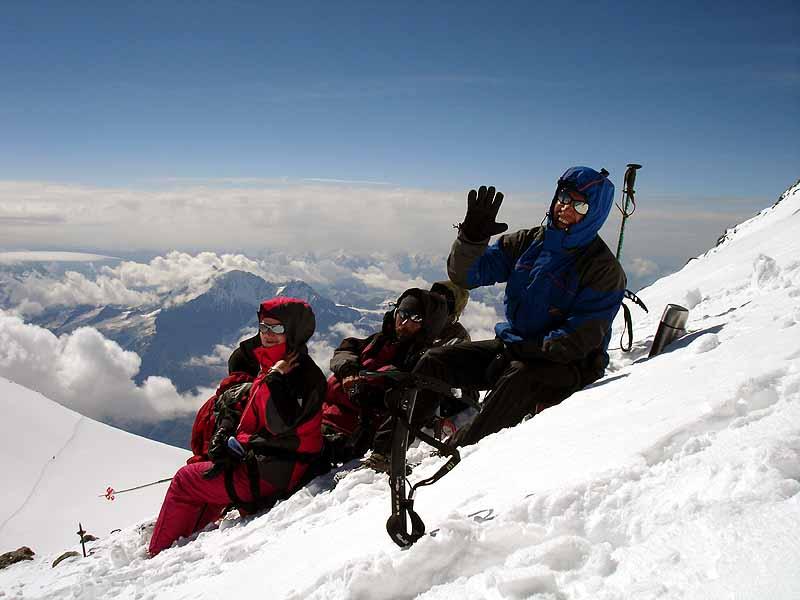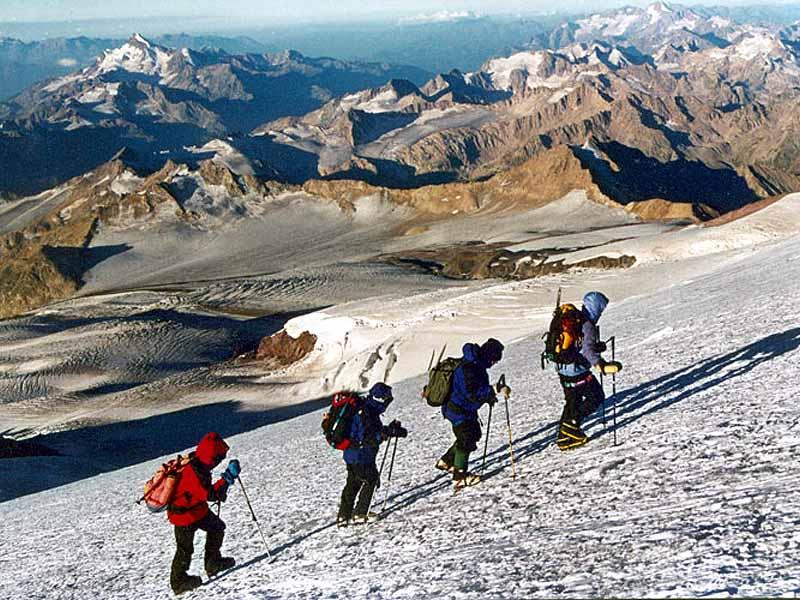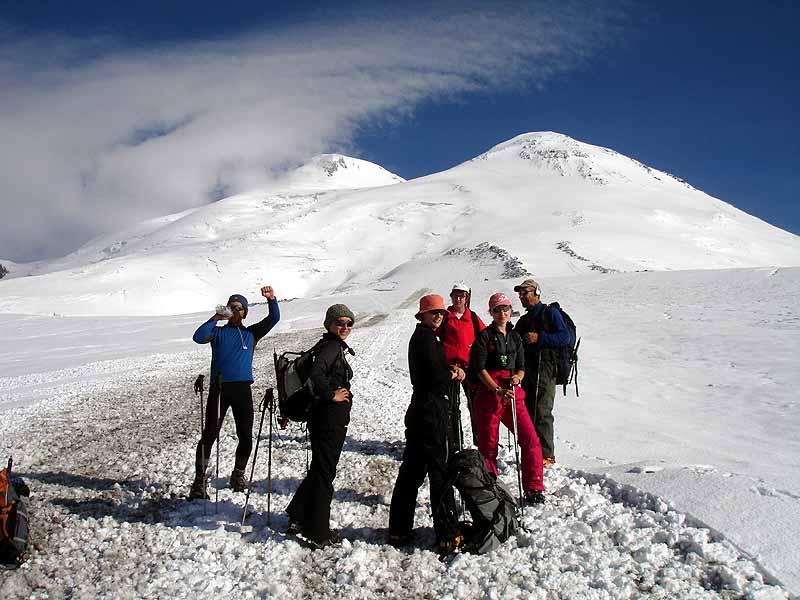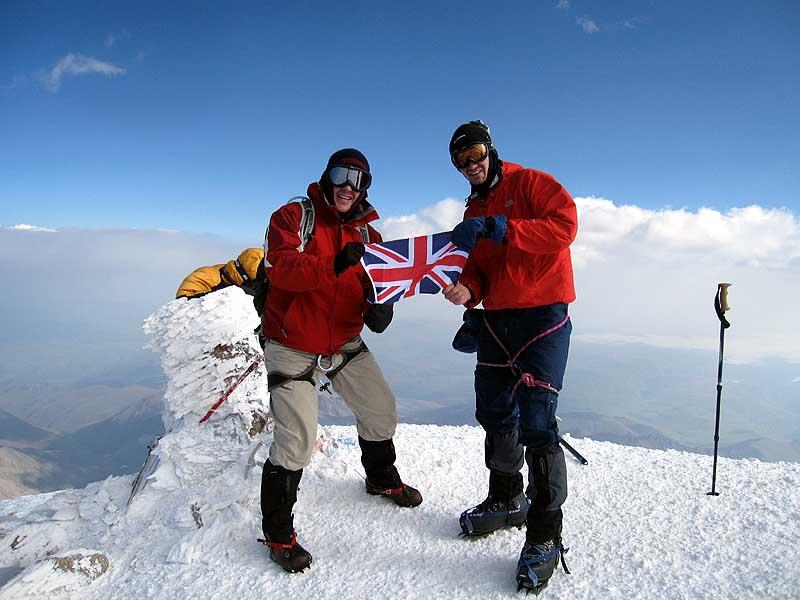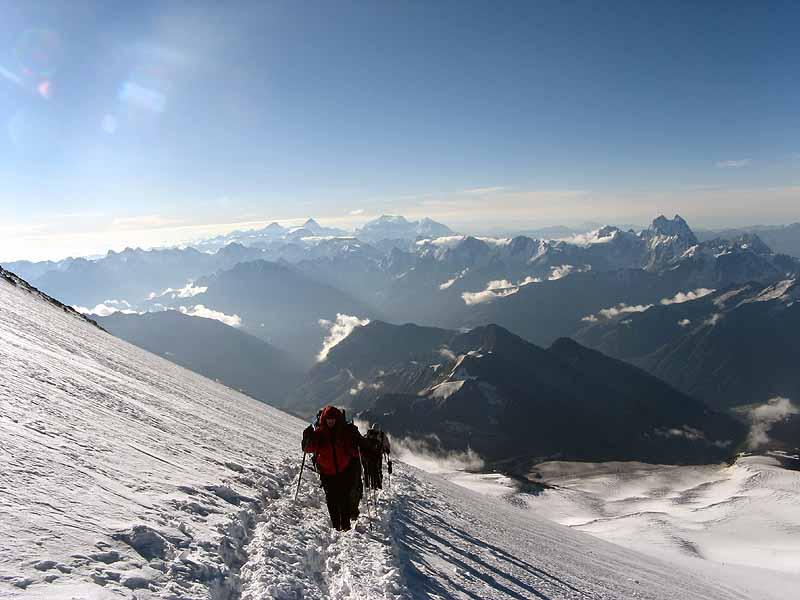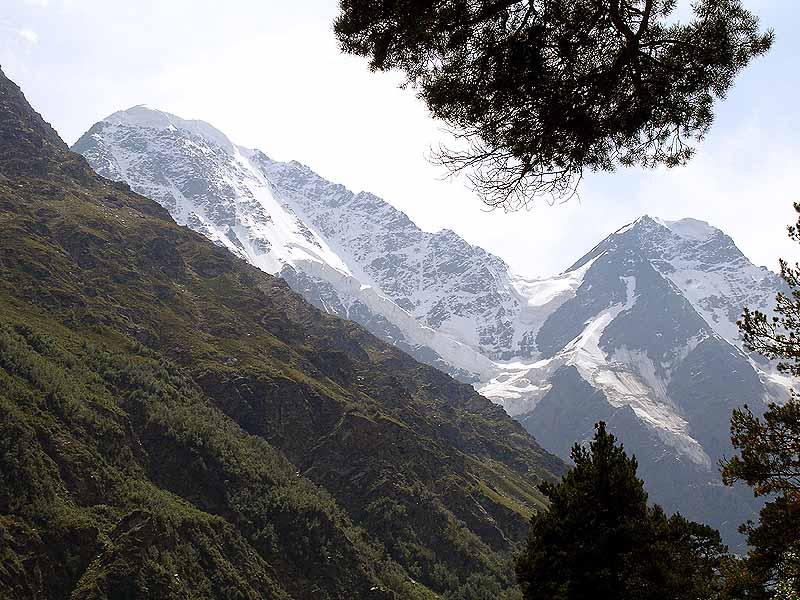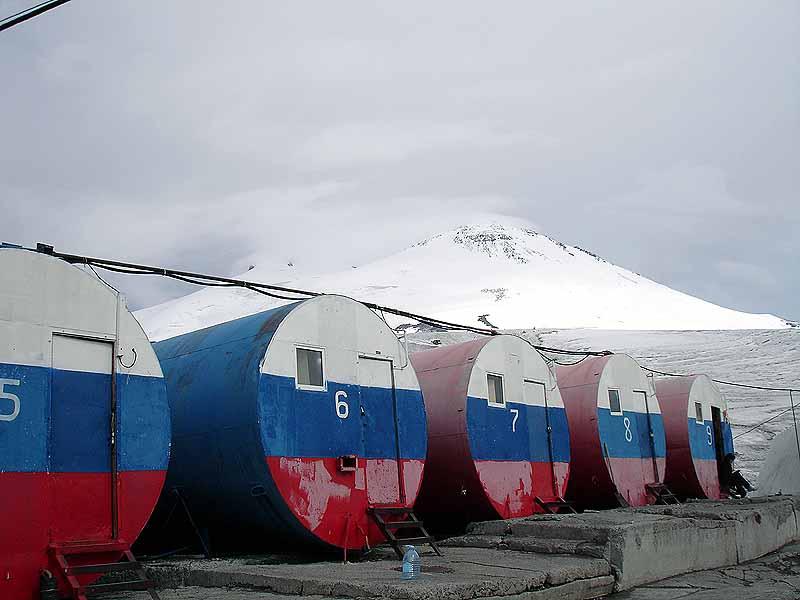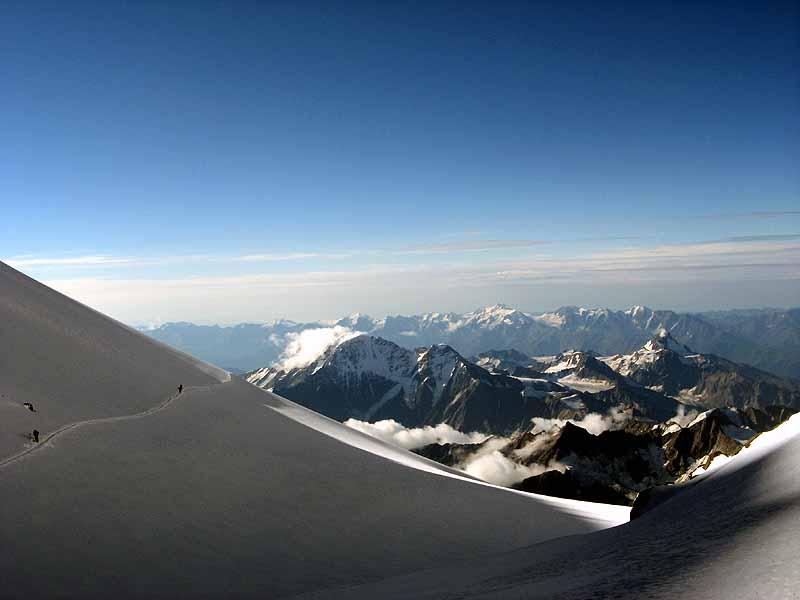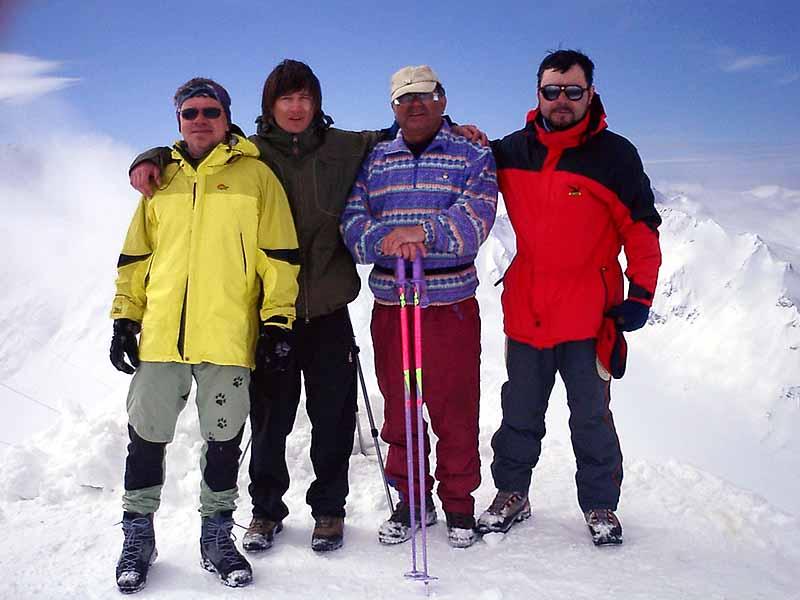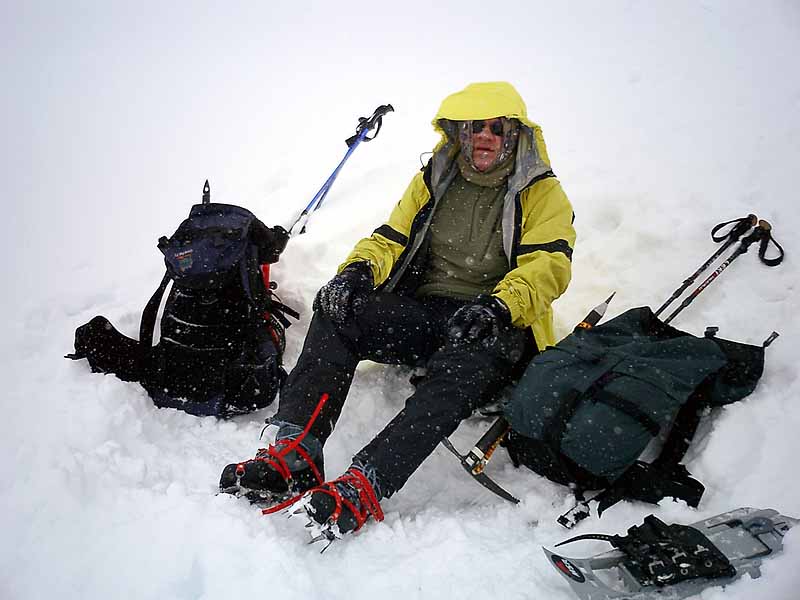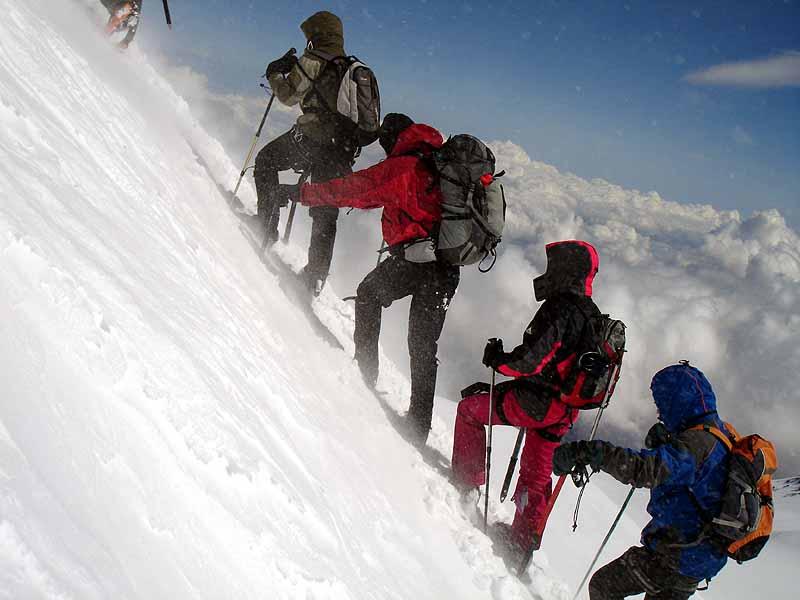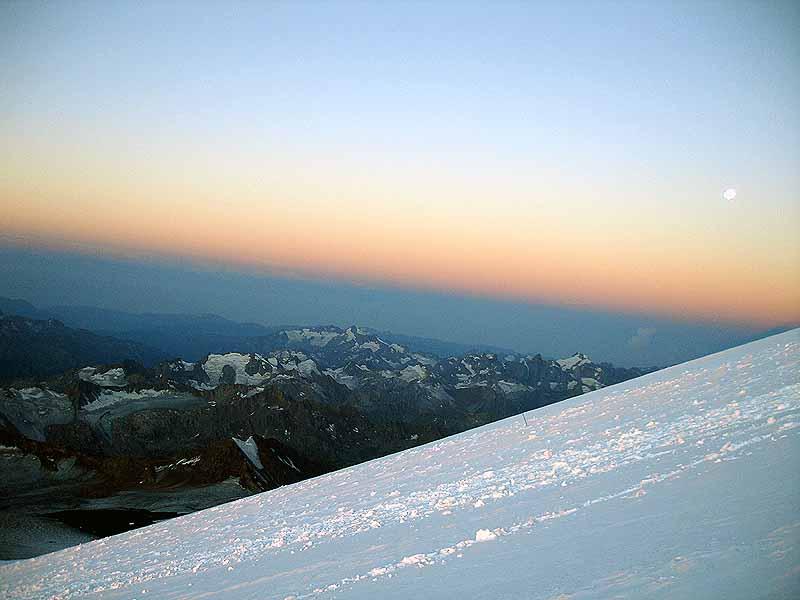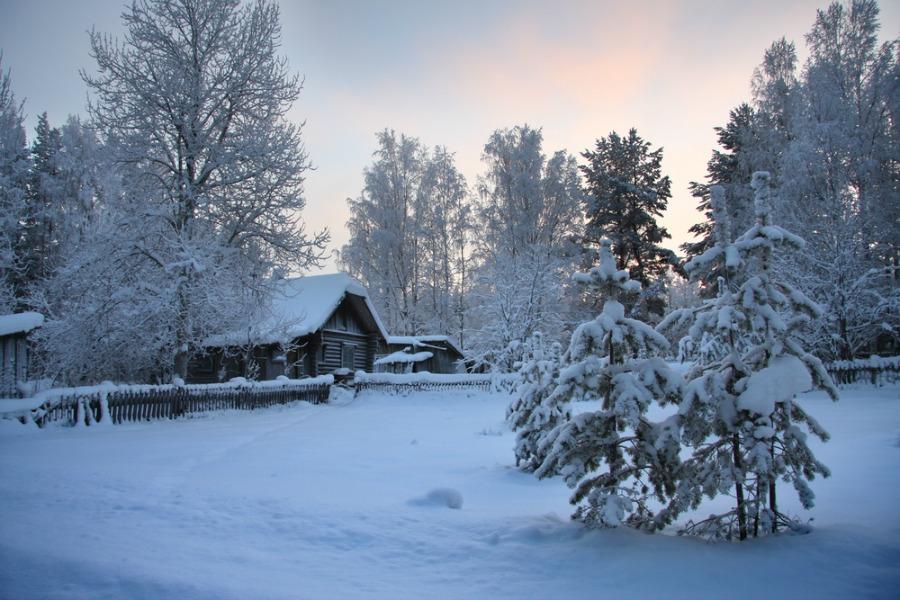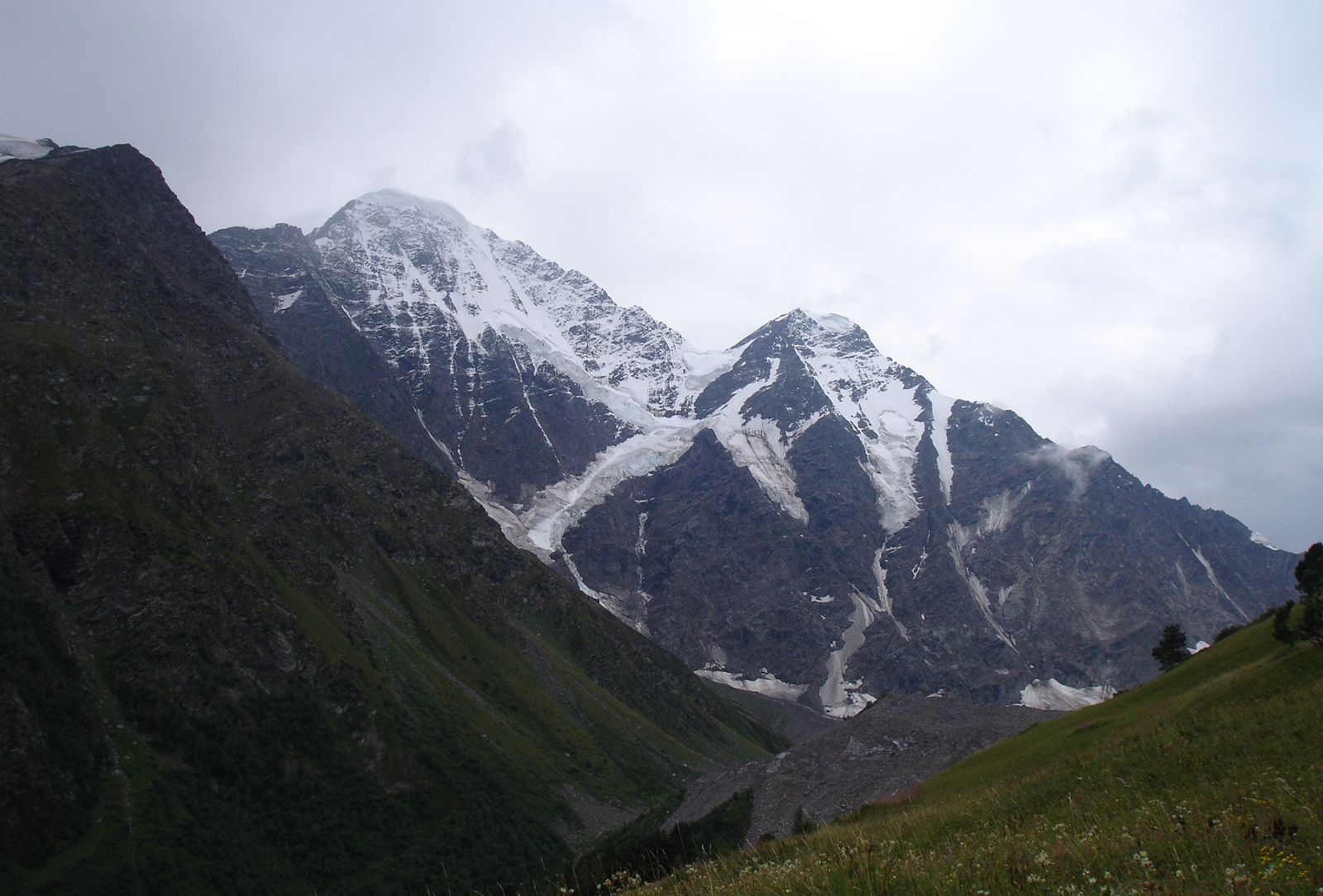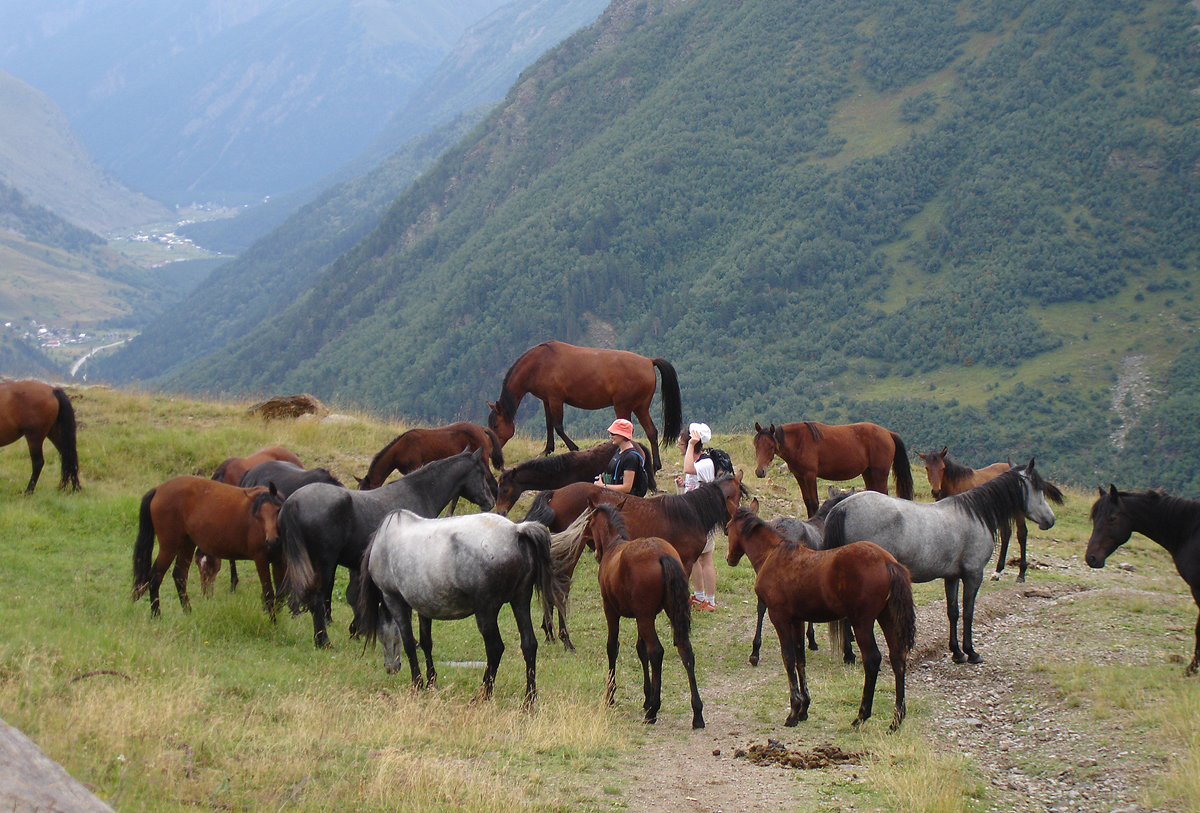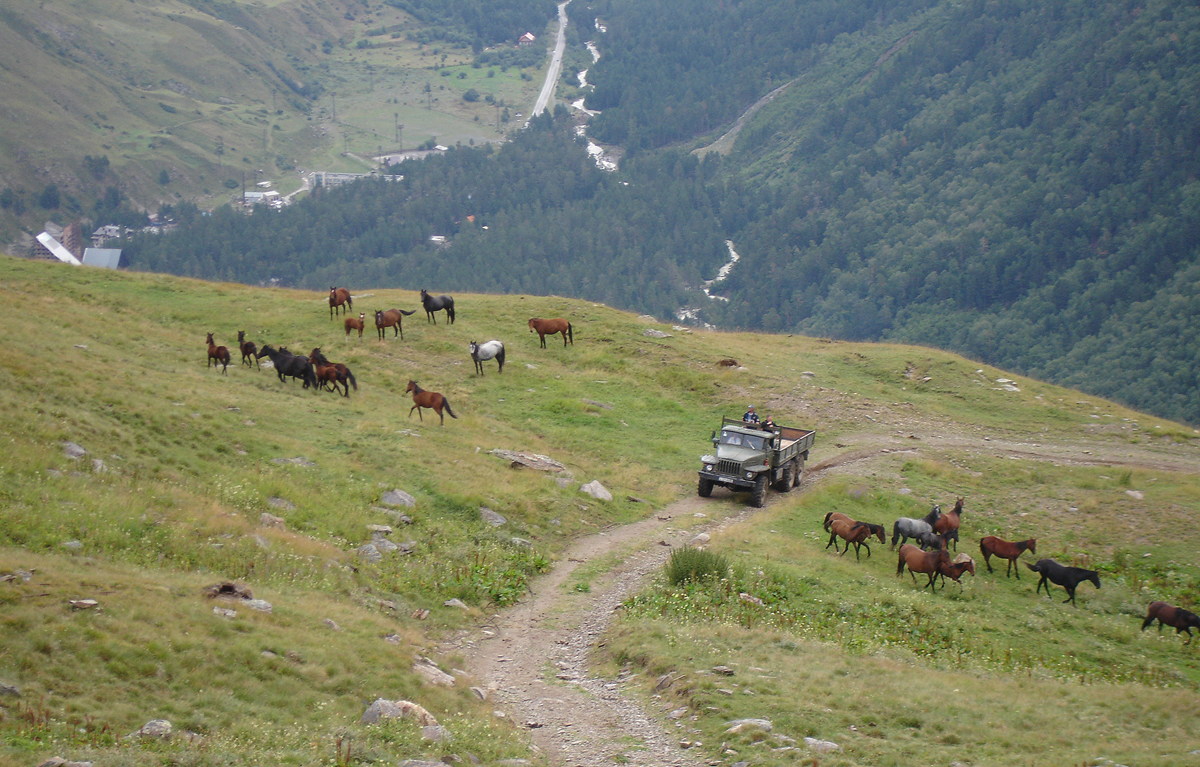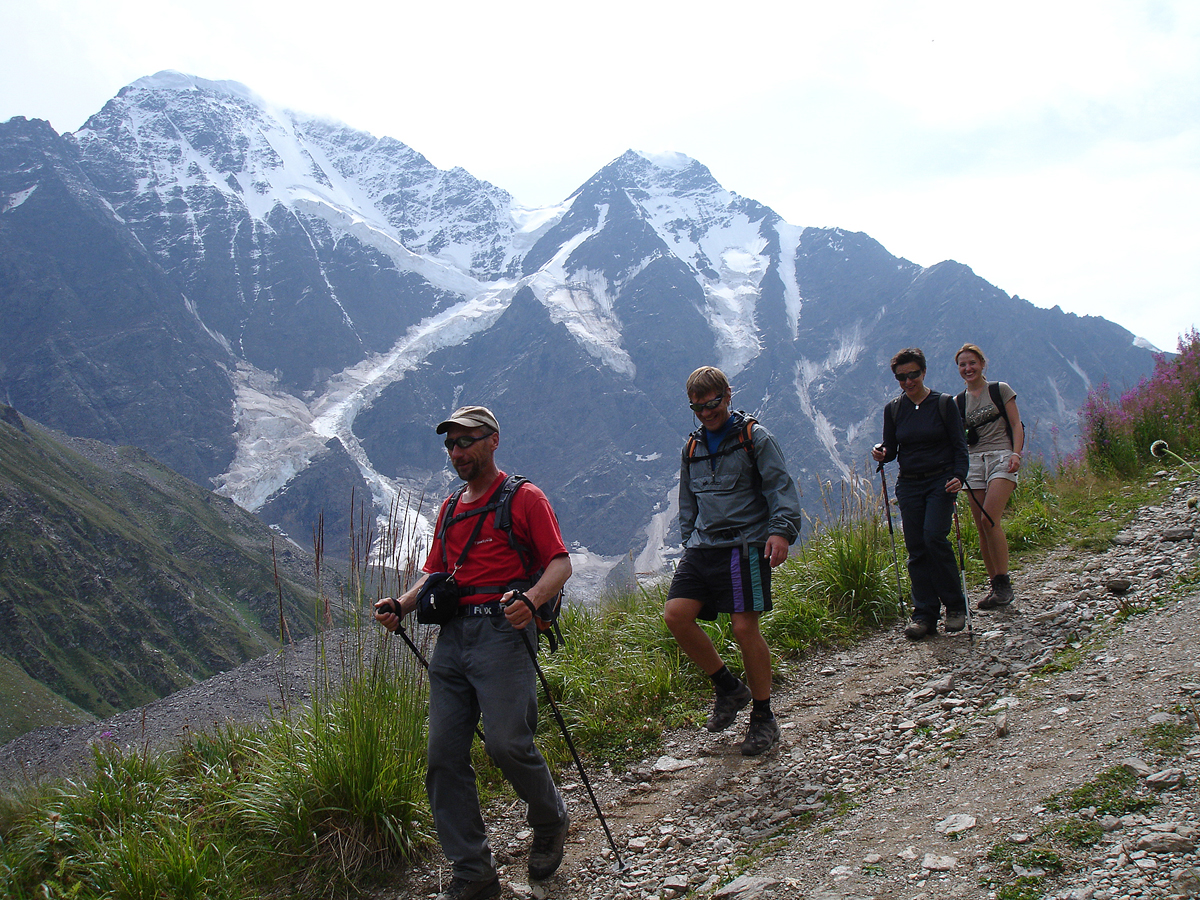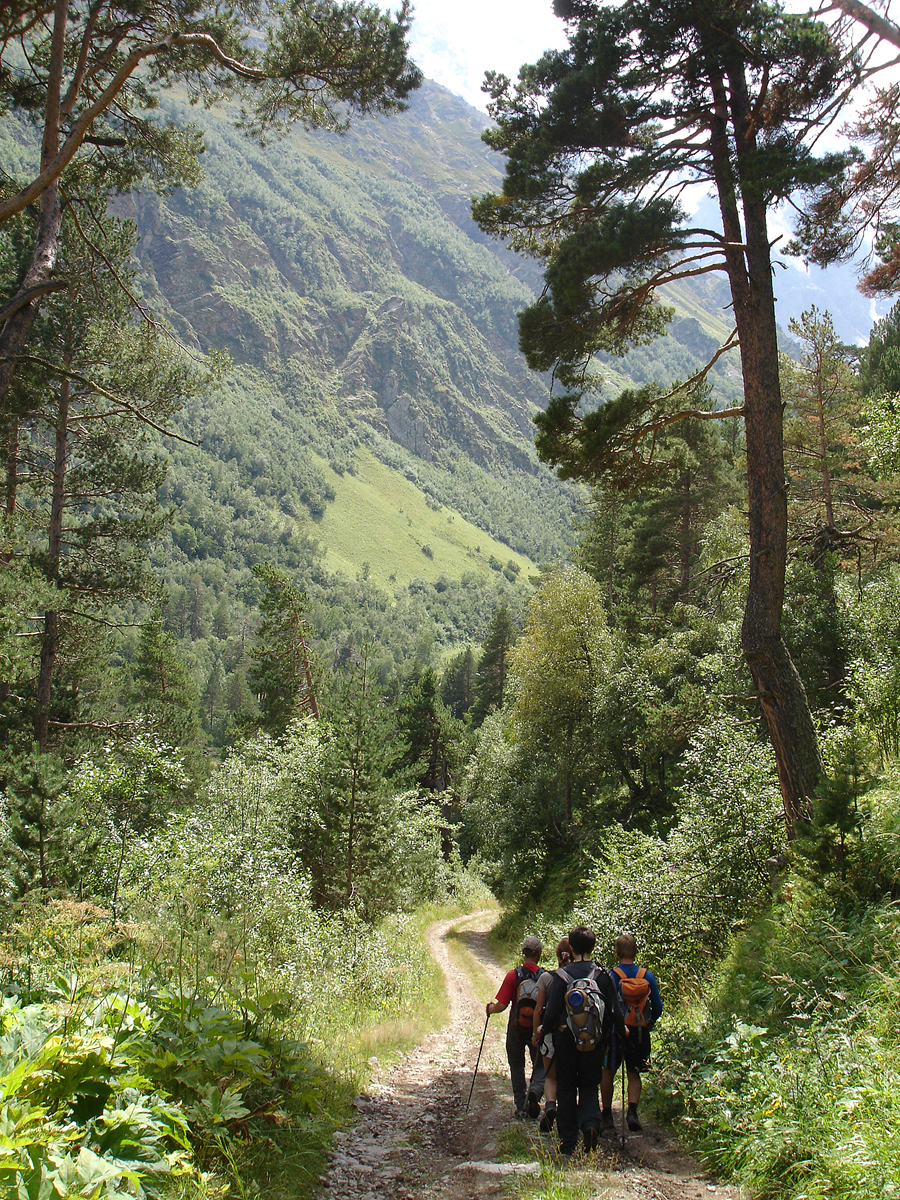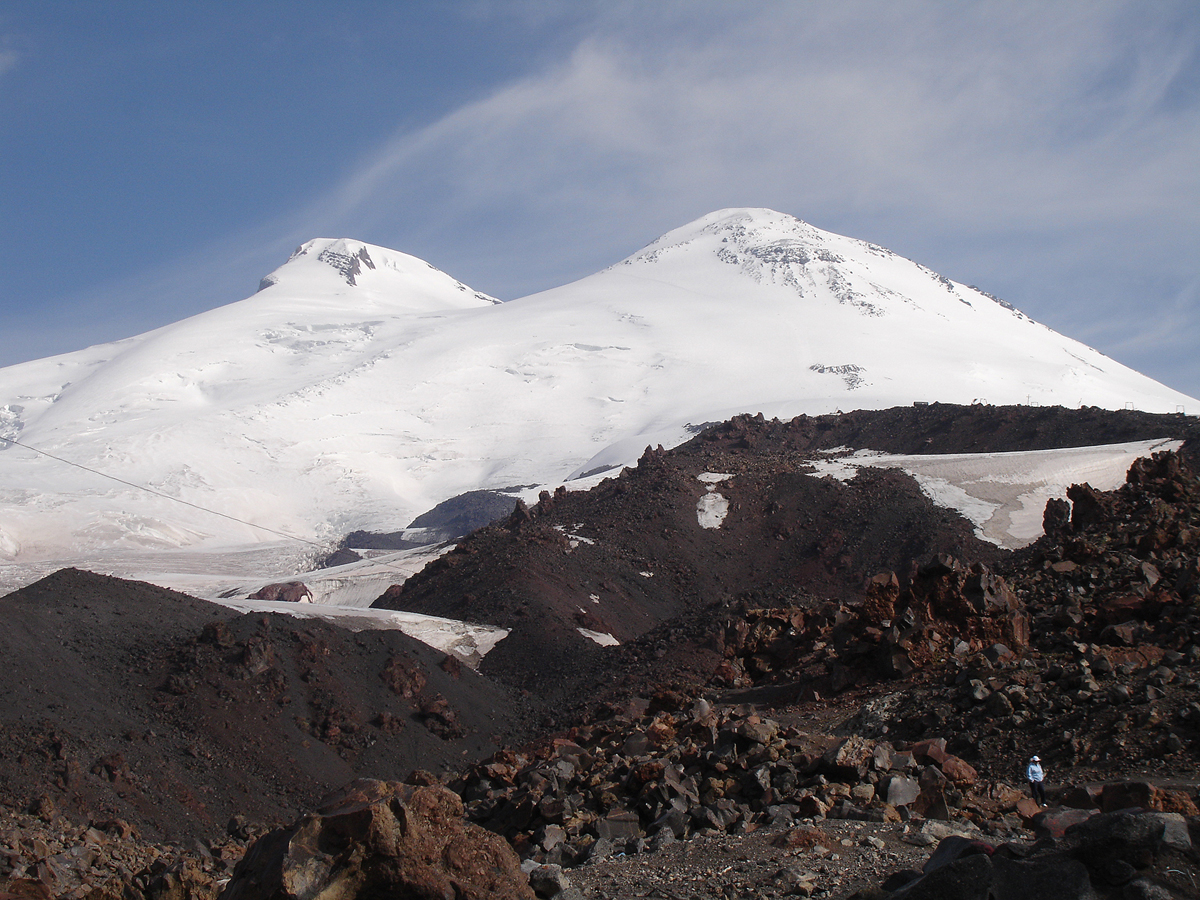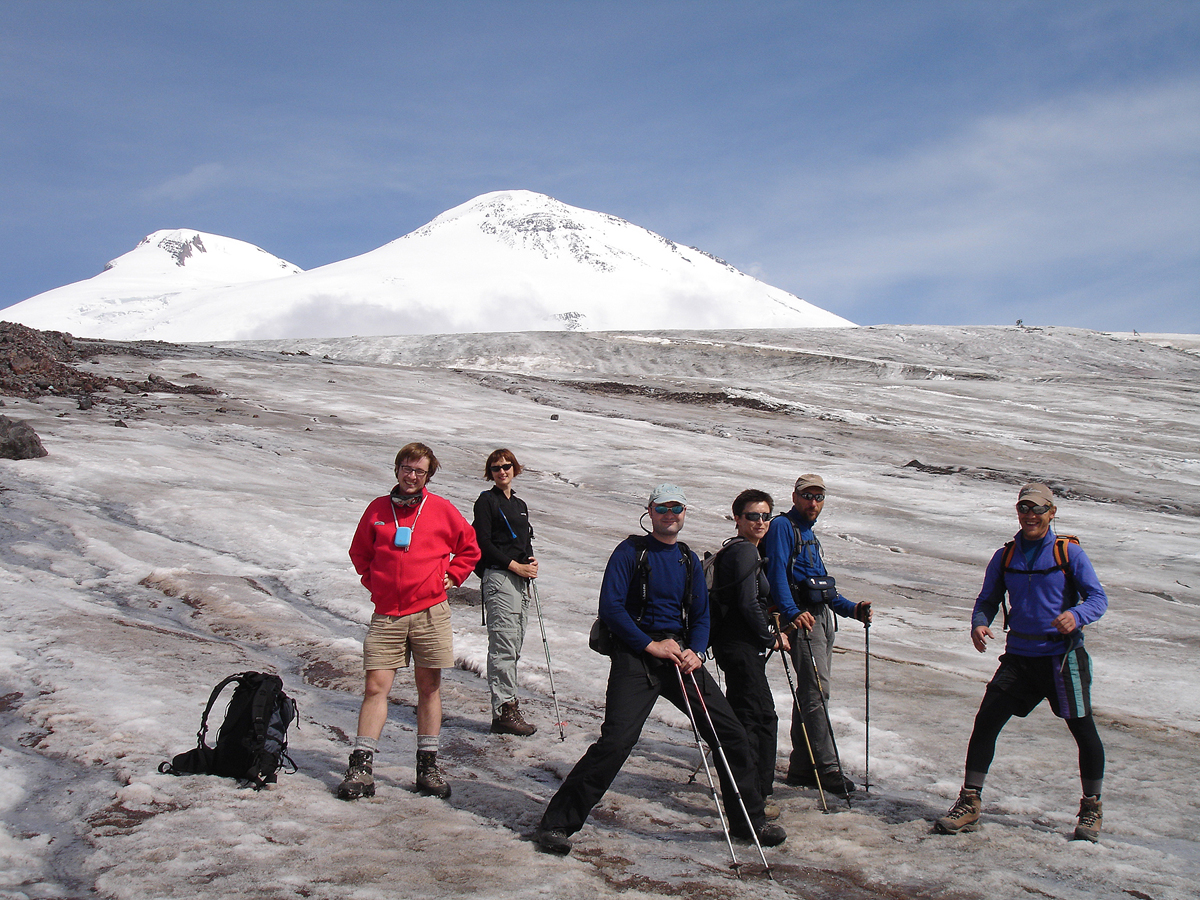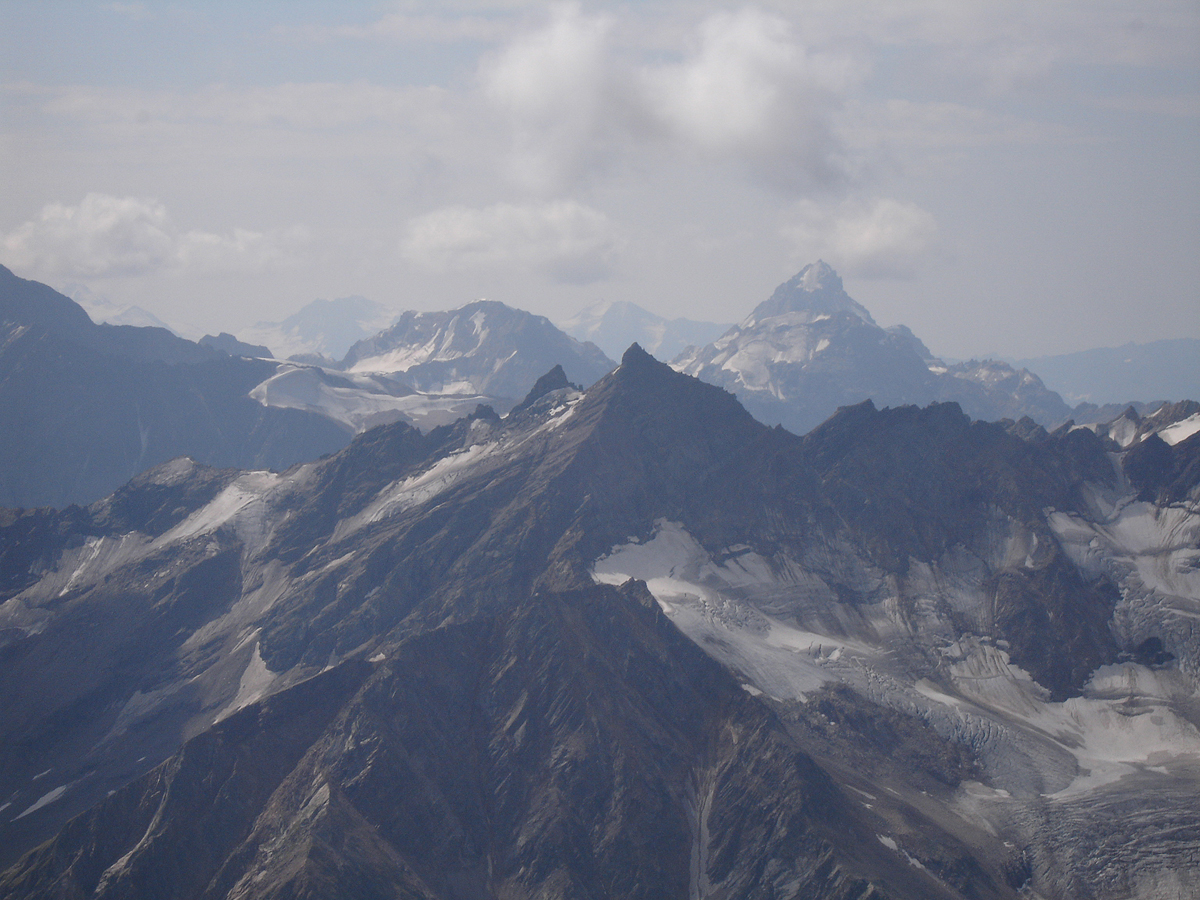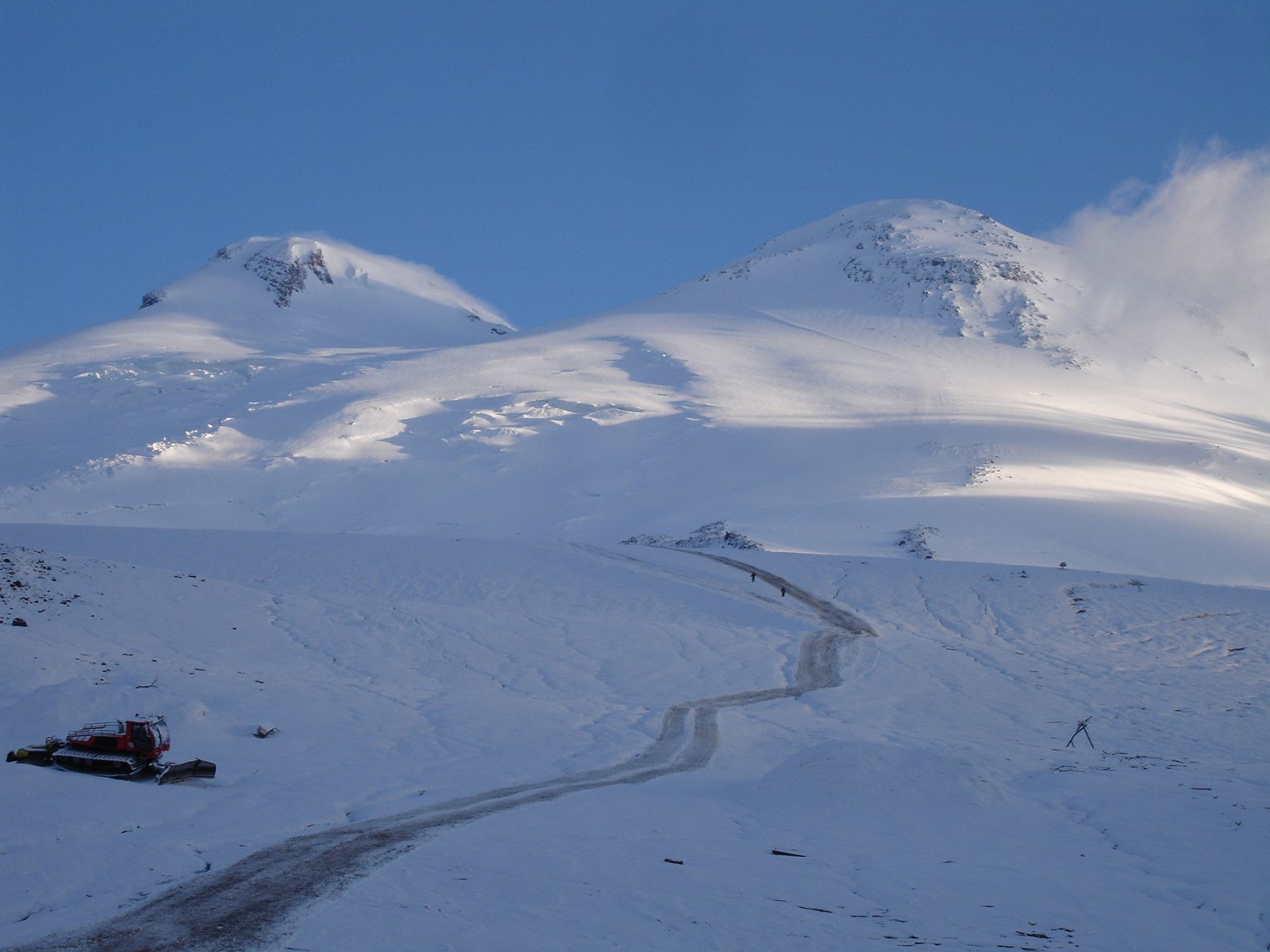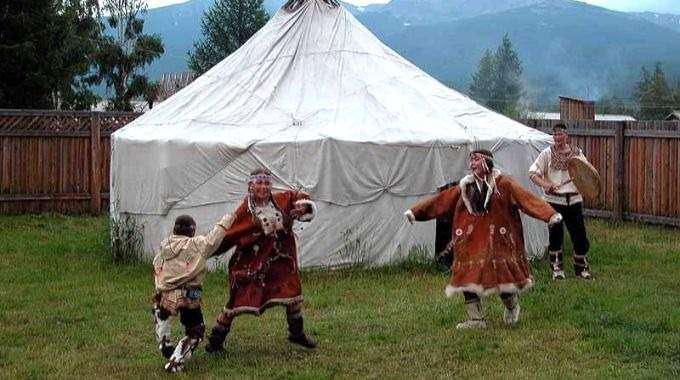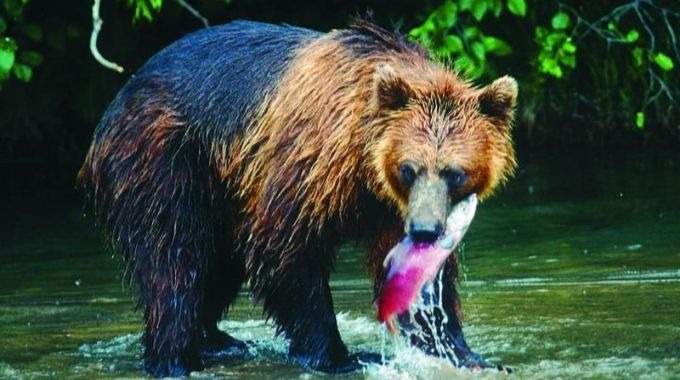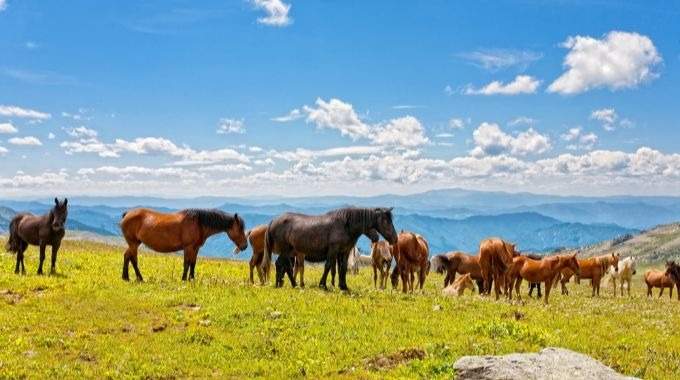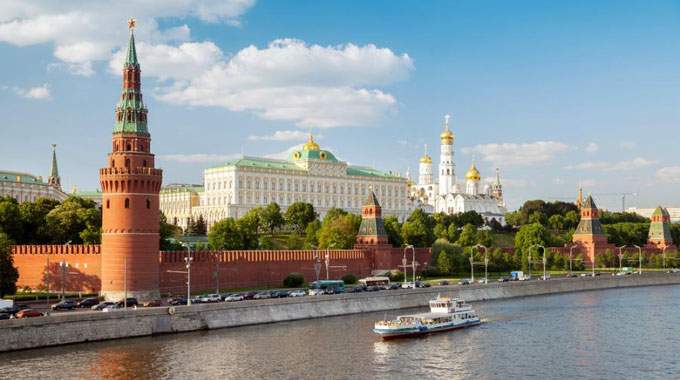Home
Holiday Planner
Adventure and Discovery
Climbing to the Highest Mountain in Europe - Elbrus (EL-01)
Climbing to the Highest Mountain in Europe - Elbrus (EL-01)
Group size
2-12 people
Season
Summer
Duration
10 days
Departs
As per schedule
Starts
Moscow
Ends
Moscow
Countries
Russia
Cities
Moscow, Elbrus
Price
from $1,995
Reservation
View dates and prices
We invite you to join our tour to climb the legendary Mount Elbrus (5,642m) - one of the World’s Seven Summits and an essential ascent for those who can meet the challenge and reach the roof of Europe! Travelling amongst the four- and five thousand meter peaks you can’t miss the highest one of all. You’ll be stunned by the view of the double-capped Elbrus, towering in its majestic grandeur over lower ranges of snowy mountains, and inviting you to scale it.
The breathtaking scenery of the Caucasian mountains and this ultimate climbing challenge will make this trekking trip unforgettable for anyone looking for some holiday adrenaline! Climbing Mount Elbrus by the classic route from the South, which is the most popular, is a splendid, long, high-altitude ascent over a moderate incline, that requires good acclimatisation but has no technical difficulties.
Please read important information about Climbing Elbrus tour.
The breathtaking scenery of the Caucasian mountains and this ultimate climbing challenge will make this trekking trip unforgettable for anyone looking for some holiday adrenaline! Climbing Mount Elbrus by the classic route from the South, which is the most popular, is a splendid, long, high-altitude ascent over a moderate incline, that requires good acclimatisation but has no technical difficulties.
Please read important information about Climbing Elbrus tour.
All tours to Russia are operational. Visas are being issued
Read more about cancellation policy in light of the Ukraine conflict
Moscow
Day 1
Transfer from the airport to the hotel
Arrival in Moscow. Our driver will meet you in the arrival sector with a Go Russia sign board. Transfer to the hotel. Free time to explore the city on your own.
Moscow / Elbrus
 Hotel Snezhniy Bars Cheget 3*,
Hotel Snezhniy Bars Cheget 3*,ElbrusThe hotel is located in a mountain landscape, close to Terskol and 4km away from the Elbrus. The Snezhniy Bars Cheget offers spacious rooms and easy access to the mountains and ski lifts of Cheget, just 300 metres away.
 Hotel Shelter Heart of Elbrus,
Hotel Shelter Heart of Elbrus,ElbrusThis is the most comfortable shelter on the slope of Elbrus. It is located just below the Gara-Bashi station. The shelter is designed in a modern style. The hotel offers a small café - bar and a dining room. You will be offered breakfast, lunch, and dinner.
 Hotel Cheeper-Azau 3*,
Hotel Cheeper-Azau 3*,ElbrusThe hotel is located in Terskol and with a close access to Polyana Azau resort. The Cheeper-Azau hotel is set on the southern slope of Mount Elbrus, at an altitude of 3,000 m above the sea level, close to the cable car station.
 Refuge of Elbrus National Park,
Refuge of Elbrus National Park,ELBRUSRefuge of Elbrus National Park is situated at the end of the last chair lift, on Garabashi hill at approx. 3,900 m. These are small houses with rooms for 4 people. There is also a canteen with kitchen facilities in the separate hut. There are showers (chargeable) and toilets located in a separate hut.
Day 2
Transfer from the hotel to the airport
Transfer to Terskol village
Overnight in a hotel
Transfer to the airport to take a short flight to Mineralnye Vody where you will be met by our representative. On the way from the airport we pass local cities and villages and in approximately 4 hours, arrive in the valley of the Baksan River. Here we can already see the snow-capped summits. Check-in at the hotel.
Elbrus
Day 3
Acclimatisation hike to Cheget-2 station (2,750 m)
Overnight in a hotel
A day to acclimatise. After breakfast we hike up to the Cheget peak (3,050 m) for approximately 5 hours, stopping to relax at the “Ai” café (2,750 m), from where you will enjoy a panoramic view of the Baksan valley and the twin summits of Mt. Elbrus. The route is not technically difficult, and the degree of the slope is approx. 15-25°. Return to the hotel. In the evening - theoretical lessons with a guide.
Elbrus
Day 4
Acclimatization hike up to the Maiden Spit waterfall (2,800 m) and the Observatory of the Russian Academy of Sciences (3,100 m)
Overnight in a hotel
Acclimatization climb to one of the main attractions of the South Elbrus region, the Maiden Spit waterfall (2,800 m) and the Observatory of the Russian Academy of Sciences (3,100 m). After descent - selection and rental of missing mountain equipment at the rental point.
Elbrus
Day 5
Acclimatisation hike up to the MIR (3,455 m) or Gara-Bashi station (3,847 m)
Overnight in a mountain hotel (3,000 m)
Breakfast. Check out from the hotel. Drive to the cable-car station "Azau" and then up to the Old Horizon station (3,000 m). Check-in in a mountain hotel (a short 30 m walk from the cable car to the hotel).
After lunch, acclimatisation hike to the Mir station (3,455 m) or up to the highest cable car station in Europe Gara-Bashi (3,847 m) depending on weather conditions and the physical condition of the group members. On the way we will visit the scenic Sarykaya-Su waterfall.
After practical lessons on the slope - training the skills of walking in crampons, working with a rope, self-retention in the snow with the help of an ice axe - descent to the hotel.
An overnight stay at this altitude is very important because it ensures smooth acclimatisation.
After lunch, acclimatisation hike to the Mir station (3,455 m) or up to the highest cable car station in Europe Gara-Bashi (3,847 m) depending on weather conditions and the physical condition of the group members. On the way we will visit the scenic Sarykaya-Su waterfall.
After practical lessons on the slope - training the skills of walking in crampons, working with a rope, self-retention in the snow with the help of an ice axe - descent to the hotel.
An overnight stay at this altitude is very important because it ensures smooth acclimatisation.
Elbrus
Day 6
Acclimatisation hike up to the Pastukhova rocks (4,700 m)
Overnight in a mountain refuge (3,800 - 3,900 m)
After an early check-out from the mountain hotel we ascend by cable car to the Gara-Bashi station (3,847 m), check-in in a mountain shelter.
Acclimatisation hike higher up to the Pastukhova rocks (4,700 m). The route is not too steep with the last part being the steepest at 20 to 25 degrees, but it is tough going at this high altitude. Be prepared for hard walking.
Practical training on the slope.
Acclimatisation hike higher up to the Pastukhova rocks (4,700 m). The route is not too steep with the last part being the steepest at 20 to 25 degrees, but it is tough going at this high altitude. Be prepared for hard walking.
Practical training on the slope.
Elbrus
Day 7
Rest day
Overnight in a mountain refuge (3,800 - 3,900 m)
Rest day.
Elbrus
Day 8
Summit attempt. Celebration dinner at the camp
Overnight in a mountain refuge (3,800 - 3,900 m)
Today we attempt to reach the main target of our trip - the summit of Mt.Elbrus. We will wake up very early to start our climbing. Using the headtorches we make our way to the Pastukhov rocks where we stop for a short rest and have some drinks. From Pastukhova rocks the slope is not more than 20-25 degrees, but the high altitude starts to affect your stamina. Over 5,000 m the route turns to the left and we start traverse the slope in the direction of the small flat “saddle” plateau, which we will reach in 2-3 hours. A final big effort is needed to reach the top, which we can do by going either to the East or West Summit.
East Summit (5,624 m) - it is an easier option because the icy slope from the saddle is not so steep (maximum 30 degree). The route leads to the top without any technical difficulties. However this route takes some time.
West Summit (5,642 m) - this is a more difficult choice because a steep clear ice slope (30-35 degrees) leads to the summit plateau. We will need to use crampons, ropes and in some cases ice-screws here. But after hard work we will arrive at the long (approx. 1 km) flat top plateau, leading us directly to the peak.
You need to be even more careful when descending than when climbing. When the slope from Pastukhova rock is covered with ice, we use a stiff rope, although it takes much longer. Return to the camp and prepare for a celebration dinner for the winners in the evening. You will also receive your certificate confirming you’ve been on the top of Mt. Elbrus once you are down in the valley.
Accommodation after the summit attempt. Generally, we stay at the mountain refuge this night. If all members of the group come back from the top before 3 PM there is an option to descend and have an overnight at the hotel Cheeper Azau. However this will require additional payment for hotel accommodation and meals, because this night has already been paid for in the mountain refuge.
Note: for this day there will be 1 guide for every 3 clients. Only one summit attempt is provided.
Most climbers order a snowcat from the mountain huts (3,800 m) to Pastukhova rocks (4,800 - 5,100 m), it saves about 3-4 hours climbing and lots of physical efforts. The cost of the snowcat is equally divided among the group members. During the high season (June - August) the snowcats operate at their full capacity (12 people including 3 guides) and the price is around 100 - 120 euros per person. This fee must be paid locally and is not included in the tour price.
The use of a snowcat is not mandatory. If there are at least three people in a group wishing not to use snowcats at all (“participants on foot”), we will provide assistant guides (1 guide for 3 climbers) with no extra fee. If the number of people wishing to climb without using a snowcat is less than three people, it is necessary to use the services of an individual guide for an additional fee of about 300 euros. This fee must be paid locally and is not included in the tour price.
Access to the route of participants on foot (who do not use snowcats) is 3-4 hours earlier than the main group. They should be aware that if one of the participants in this mini-group feels unwell or there are other reasons to refuse to continue climbing by one of the participants, the remaining 1-2 members are also obliged to descend to the hut. Participants who were forced to descend (from altitudes up to 4,500 m) but are in good physical condition can make a second summit attempt on the same day, provided they either rent a snowcat / snowmobile (approximately 150 eur) to meet the main group or their forced descent was before the main group started their ascend.
Based on our experience only 5% of all climbers prefer NOT to use snowcats on the summit day. Payment in cash only. Please budget your expenses accordingly.
Timing
East Summit (5,624 m) - it is an easier option because the icy slope from the saddle is not so steep (maximum 30 degree). The route leads to the top without any technical difficulties. However this route takes some time.
West Summit (5,642 m) - this is a more difficult choice because a steep clear ice slope (30-35 degrees) leads to the summit plateau. We will need to use crampons, ropes and in some cases ice-screws here. But after hard work we will arrive at the long (approx. 1 km) flat top plateau, leading us directly to the peak.
You need to be even more careful when descending than when climbing. When the slope from Pastukhova rock is covered with ice, we use a stiff rope, although it takes much longer. Return to the camp and prepare for a celebration dinner for the winners in the evening. You will also receive your certificate confirming you’ve been on the top of Mt. Elbrus once you are down in the valley.
Accommodation after the summit attempt. Generally, we stay at the mountain refuge this night. If all members of the group come back from the top before 3 PM there is an option to descend and have an overnight at the hotel Cheeper Azau. However this will require additional payment for hotel accommodation and meals, because this night has already been paid for in the mountain refuge.
Note: for this day there will be 1 guide for every 3 clients. Only one summit attempt is provided.
Important information
Snowcat rental for summit attemptMost climbers order a snowcat from the mountain huts (3,800 m) to Pastukhova rocks (4,800 - 5,100 m), it saves about 3-4 hours climbing and lots of physical efforts. The cost of the snowcat is equally divided among the group members. During the high season (June - August) the snowcats operate at their full capacity (12 people including 3 guides) and the price is around 100 - 120 euros per person. This fee must be paid locally and is not included in the tour price.
The use of a snowcat is not mandatory. If there are at least three people in a group wishing not to use snowcats at all (“participants on foot”), we will provide assistant guides (1 guide for 3 climbers) with no extra fee. If the number of people wishing to climb without using a snowcat is less than three people, it is necessary to use the services of an individual guide for an additional fee of about 300 euros. This fee must be paid locally and is not included in the tour price.
Access to the route of participants on foot (who do not use snowcats) is 3-4 hours earlier than the main group. They should be aware that if one of the participants in this mini-group feels unwell or there are other reasons to refuse to continue climbing by one of the participants, the remaining 1-2 members are also obliged to descend to the hut. Participants who were forced to descend (from altitudes up to 4,500 m) but are in good physical condition can make a second summit attempt on the same day, provided they either rent a snowcat / snowmobile (approximately 150 eur) to meet the main group or their forced descent was before the main group started their ascend.
Based on our experience only 5% of all climbers prefer NOT to use snowcats on the summit day. Payment in cash only. Please budget your expenses accordingly.
Timing
- Start time: when using a snowcat to Pastukhova rocks - 4 AM, without using a snowcat - 1 AM.
- Climb duration: for most groups, the ascent to the West summit is 7-9 hours.
- Summit: the summit is usually reached by 10 AM - 1 PM.
- Descend: from 2 PM all group members must start their descend, from the top to the hut it takes 4-6 hours.
Elbrus
Day 9
Descend down to Terskol
Overnight in a hotel
Descend down to Terskol and overnight at the hotel. In case of bad weather this is a back up day for summit attempt.
Elbrus / Moscow
Day 10
Free time in the morning. Transfer to the airport Mineralnyje Vody
Dates and prices
Please read notes at the bottom of the table to learn more about the meaning of each pricing section
Travel package
Year of travel
2026
Important if arranging your own flights. Please note if you are arranging your own flights to Elbrus (airport Mineralnye Vody, airport code MRV) please aim to arrive not later than 14:00 and depart not earlier than 11:00. If your flight is later / earlier than specified above, a private transfer will be arranged at an extra cost (around $100-150 / one way).
Accommodation. The only difference between packages is the level of comfort at mountain hotels and refuges. Our standard package includes:
Accommodation. The only difference between packages is the level of comfort at mountain hotels and refuges. Our standard package includes:
- Days 2-4, 9: Hotel Snezhny Bars - standard rooms for 1 - 2 people
- Day 5: Mountain hotel Cheeper Azau - rooms for 5 - 7 people
- Days 6-8: Refuge Heart of Elbrus - rooms for 8 people or Refuge of National Park - rooms for 4 people
| Travel dates | Excluding flights | Single supplement | Book |
|---|---|---|---|
| 04/30/2026 - 05/09/2026 | $1,995 | $195 | book now |
| 05/15/2026 - 05/24/2026 | $1,995 | $195 | book now |
| 05/29/2026 - 06/07/2026 | $1,995 | $195 | book now |
| 06/05/2026 - 06/14/2026 | $1,995 | $195 | book now |
| 06/12/2026 - 06/21/2026 | $1,995 | $195 | book now |
| 06/19/2026 - 06/28/2026 | $1,995 | $195 | book now |
| 06/26/2026 - 07/05/2026 | $1,995 | $195 | book now |
| 07/03/2026 - 07/12/2026 | $1,995 | $195 | book now |
| 07/10/2026 - 07/19/2026 | $1,995 | $195 | book now |
| 07/17/2026 - 07/26/2026 | $1,995 | $195 | book now |
| 07/24/2026 - 08/02/2026 | $1,995 | $195 | book now |
| 07/31/2026 - 08/09/2026 | $1,995 | $195 | book now |
| 08/07/2026 - 08/16/2026 | $1,995 | $195 | book now |
| 08/14/2026 - 08/23/2026 | $1,995 | $195 | book now |
| 08/21/2026 - 08/30/2026 | $1,995 | $195 | book now |
| 08/28/2026 - 09/06/2026 | $1,995 | $195 | book now |
| 09/04/2026 - 09/13/2026 | $1,995 | $195 | book now |
| 09/11/2026 - 09/20/2026 | $1,995 | $195 | book now |
Important if arranging your own flights. Please note if you are arranging your own flights to Elbrus (airport Mineralnye Vody, airport code MRV) please aim to arrive not later than 14:00 and depart not earlier than 11:00. If your flight is later / earlier than specified above (arrival flight – not later than 14:00 and departure flight not earlier than 11:00), a private transfer will be arranged at an extra cost (around $100-150 / one way).
Accommodation. The only difference between packages is the level of comfort at mountain hotels and refuges. Our comfort package includes:
Accommodation. The only difference between packages is the level of comfort at mountain hotels and refuges. Our comfort package includes:
- Days 2-4, 9: Hotel Snezhny Bars - better quality comfort rooms for 1 - 2 people
- Day 5: Mountain hotel Cheeper Azau - rooms for 2 - 4 people
- Days 6-8: Refuge Heart of Elbrus - rooms for 4 people or Refuge of National Park - at a lower level with a panoramic window, or rooms for 2 people at a lower level.
| Travel dates | Excluding flights | Single supplement | Book |
|---|---|---|---|
| 04/30/2026 - 05/09/2026 | $2,295 | $195 | book now |
| 05/15/2026 - 05/24/2026 | $2,295 | $195 | book now |
| 05/29/2026 - 06/07/2026 | $2,295 | $195 | book now |
| 06/05/2026 - 06/14/2026 | $2,295 | $195 | book now |
| 06/12/2026 - 06/21/2026 | $2,295 | $195 | book now |
| 06/19/2026 - 06/28/2026 | $2,295 | $195 | book now |
| 06/26/2026 - 07/05/2026 | $2,295 | $195 | book now |
| 07/03/2026 - 07/12/2026 | $2,295 | $195 | book now |
| 07/10/2026 - 07/19/2026 | $2,295 | $195 | book now |
| 07/17/2026 - 07/26/2026 | $2,295 | $195 | book now |
| 07/24/2026 - 08/02/2026 | $2,295 | $195 | book now |
| 07/31/2026 - 08/09/2026 | $2,295 | $195 | book now |
| 08/07/2026 - 08/16/2026 | $2,295 | $195 | book now |
| 08/14/2026 - 08/23/2026 | $2,295 | $195 | book now |
| 08/21/2026 - 08/30/2026 | $2,295 | $195 | book now |
| 08/28/2026 - 09/06/2026 | $2,295 | $195 | book now |
| 09/04/2026 - 09/13/2026 | $2,295 | $195 | book now |
| 09/11/2026 - 09/20/2026 | $2,295 | $195 | book now |
Note on pricing:
- All prices are per person, in US dollars. All included services are listed in the tour dossier and the section "Included" in the tour description.
- Price "Excluding flight" does not cover airfare, you are free to book your own flights. Alternatively we can quote for flights from any international airport.
- Single supplement goes towards single room (cabin for cruises) accommodation.
See what our clients say about this tour
We are very happy to have served thousands of happy customers who travelled with us.
The service was excellent. All transfers went smoothly and the hotel accommodation was very good. The base camp hut at Elbrus was a bit cramped.
I have completed the feedback form and thank you for your excellent service - we had a fantastic time and all members of our team reached the summit of Mt Elbrus and returned safely.
The programme as a whole was excellent, such the acclimatisation days, hotels and food. The guide, Vladamir was excellent, I can say so many good things about him.
The tour itself lasted twelve days, the acclimatization hikes where set out perfectly and time on the mountain was also arranged perfectly. The food was adequate and accommodation was suitable. Summit day the weather was fantastic with extra guides brought in for the group. The guides were professional well organised and methodical, knew the mountain well and that reflected on the day.
Just back home from a wonderful 10 day trip to Elbrus. I would like to thank you for your assistance in organising the trip, which was well planned in every detail. It was without a doubt an experience of a lifetime. Please pass on my thanks to Roxana and Igor for their kindness and professionalism, with guides like those you cannot go wrong.
The guides used on Elbrus were exceptional and made the trip very very special, specifically Lena and Eugene.
Just a quick mail to say thank you for all your help in organising Kenneth and Kevin's trip to Elbrus. They arrived back home on Saturday, shattered but overwhelmed. They thoroughly enjoyed the experience having reached the summit on Wednesday last. Everyone they met through Go-Russia was so professional and pleasant.
Trip was awesome, very satisfying if somewat painful....I think a bit more time acclimatising would be better, but aprt from that it was amazing. Thank you so much.
Sitting outside the hut waiting for the others to arrive after reaching the top of Europe and exchanging congratulations as they stumble back into camp is for me possibly the most satisfying time. It's when you see your own struggle reflected in the condition of the people around you. it marks the real culmination of the 14 hour summit slog, the 5 days of climbing before it, the months of training before that, and the years that you've been wanting to do this.
Alternative Tours
These itineraries are designed to give you some suggestions for what is possible when you travel in Russia
